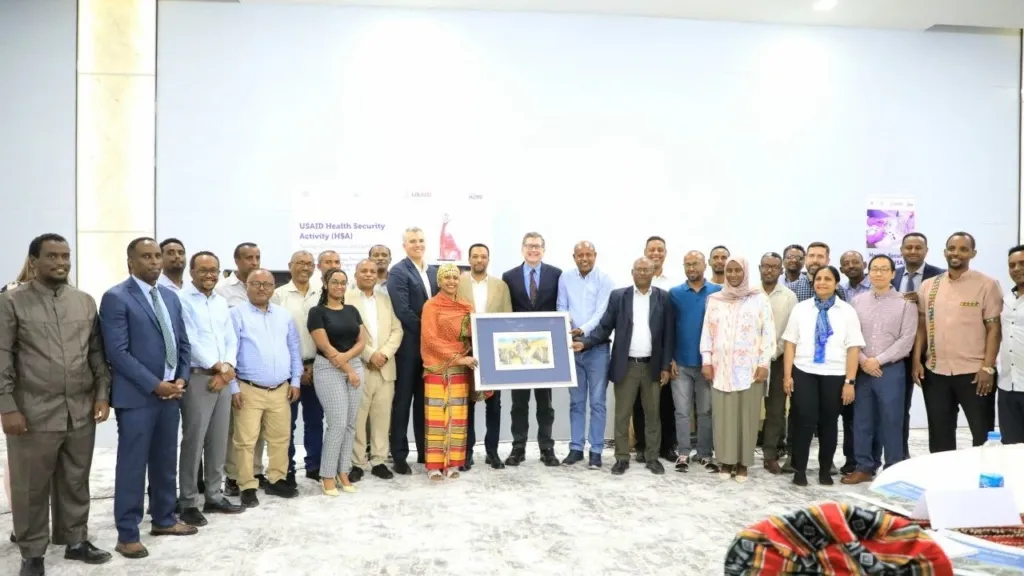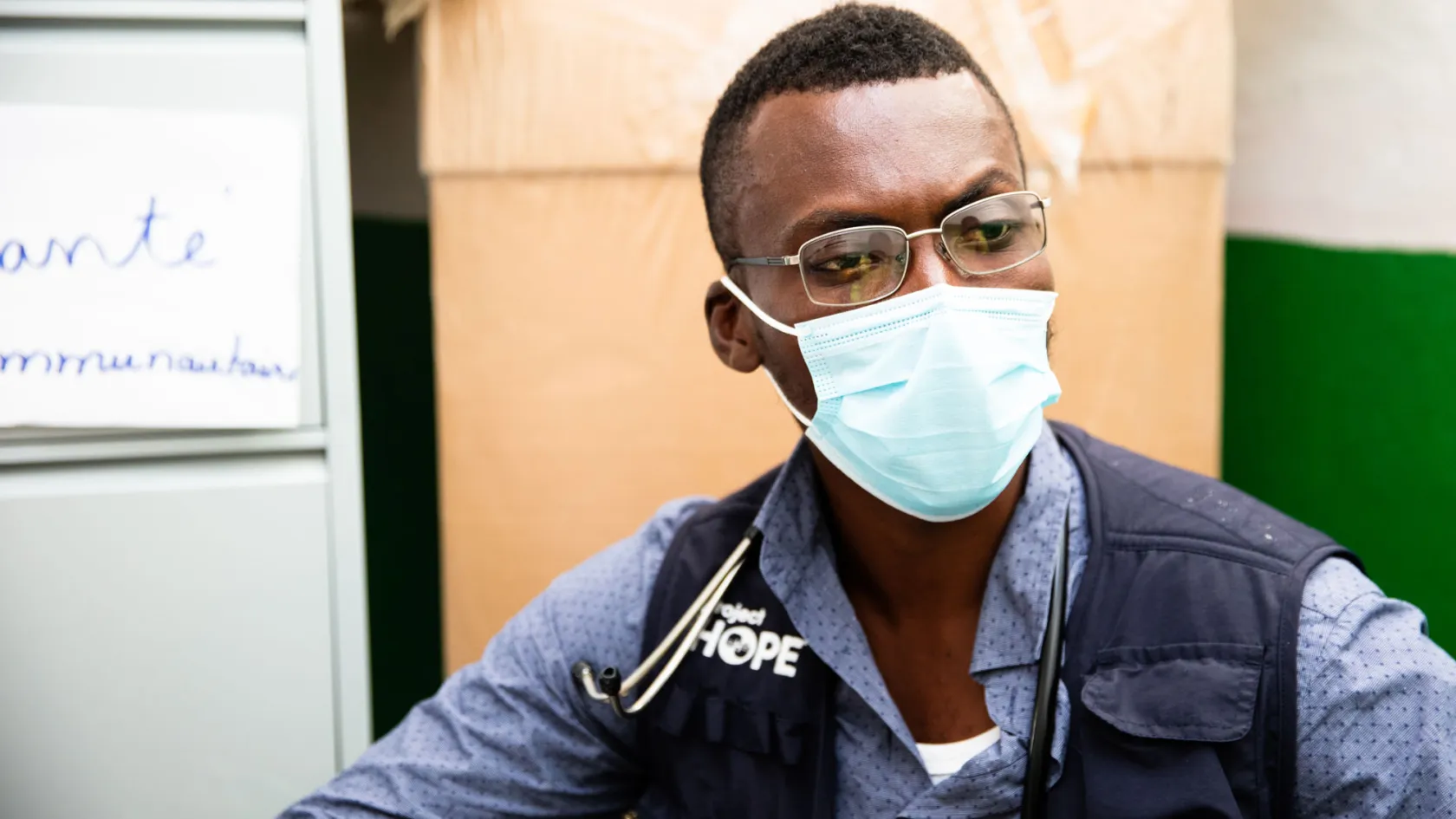How Mobile Clinics Bridge the Gap to Care in Haiti
Project HOPE is operating mobile medical units to ensure access to primary health care and mental health support amid the worsening humanitarian crisis in southwest Haiti.
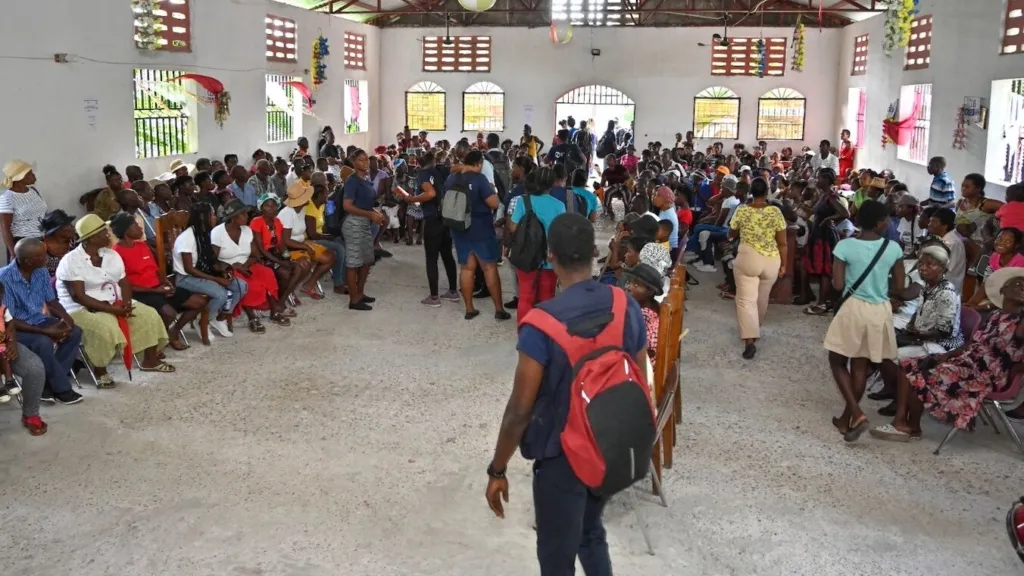
Communities in Haiti are reeling from a complex humanitarian emergency — the result of ongoing violence, political and economic turmoil, deepening food insecurity, recurrent cholera outbreaks, and the last major natural disaster.
In May 2023, Project HOPE conducted a comprehensive assessment in the Grand Sud region of the country to understand the impacts on health. Results were harrowing. Over half of participants reported having to travel over an hour to access a health facility — but the biggest obstacle to health care was the lack of financial resources.
“Chronic poverty prevents the vast majority of the population from accessing quality health care,” says Dr. Didinu Tamakloe, the Haiti country director for Project HOPE. “Entire families are unable to go to their closest hospital or health center because of the cost of health care and of transport.”
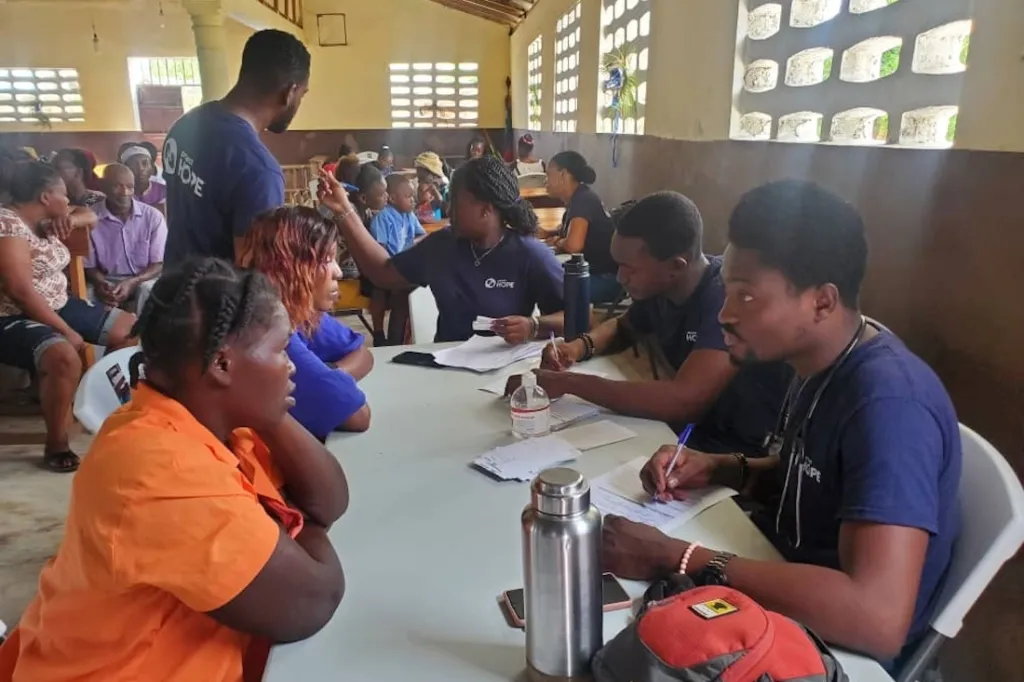
In response to assessment findings, Project HOPE launched a multi-sectoral program funded by USAID’s Bureau for Humanitarian Assistance to provide health and protection services; improve standards for water, sanitation, and hygiene (WASH); and improve coordination between humanitarian organizations. The operation of mobile medical units (MMUs, or mobile clinics) has proven critical in ensuring the provision of primary care and mental health services.
“People of every background come to the MMUs Project HOPE has been able to deploy in the country, seeking primary health care and psychosocial support,” says Andrés De Sousa, Project HOPE’s program officer.
By deploying mobile clinics, Project HOPE reaches vulnerable communities living far from areas with functional health facilities, providing free health care, hygiene promotion activities, and protection services. The team works closely with community leaders to organize and promote the clinics, which often take place in schools, churches, or old health facilities.
Doctors triage patients, provide medical consultations, and prescribe medicines. Patients with mental health issues or those who had experienced gender-based violence are referred on to the protection team for confidential follow-up. Entire communities have found comfort and relief through the clinics, including those who have been displaced.
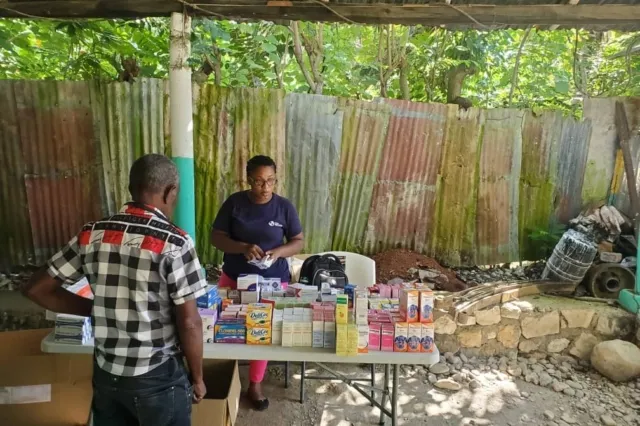
“Haitians are seeking safety and better conditions for themselves and their families, even if that means they are leaving their homes to sleep in makeshift camps,” Project HOPE’s senior regional director, Adib Fletcher, said in an opinion piece published in January. Though Project HOPE’s clinic see over 500 patients a day, the need remains immense.
From October to December 2023, the Project HOPE teams operated MMUs on a near daily basis, and treated more than 45,000 patients in the Sud, Nippes, and Grand’Anse departments.
“In one day in November, we planned to see 100 patients and ended up treating 733 — it’s proof that the needs and gaps in primary health care are enormous and communities are lacking the means to treat themselves,” Dr. Tamakloe says. “One patient thanked God for our intervention and said she had run out of her medication for high blood pressure and wasn’t able to pay for more. She told me lost her 8-year-old son after he ran a high fever at night because they didn’t have enough money to get to the health center.”
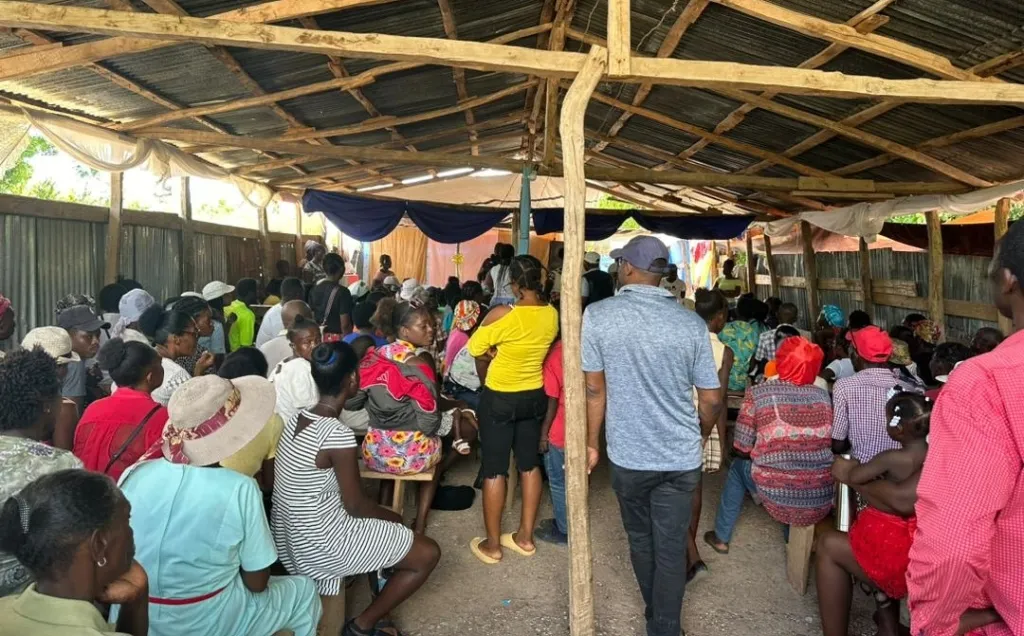
In addition to common infectious diseases, our team has treated a high number of chronic illnesses that have worsened due to a lack of medical follow-up and treatment, as well as severe infections and wounds that had gone untreated for a prolonged time.
This year, thanks to continued support from USAID, Project HOPE will hold two mobile clinics a week in the Nippes department. Additional funding is needed to extend mobile clinic activities to the Sud and Grand’Anse departments and ensure access to lifesaving health care as violence surges and instability reigns.
Roughly 80% of the capital city, Port-au-Prince, is now controlled by gangs. Roadblocks caused by demonstrations or gang control make it impossible for health facilities to obtain pharmaceuticals and medical supplies, as well as fuel needed to run generators to power operating rooms, laboratories, and neonatal wards — even fuel for ambulances.
“Our team is committed to providing essential health care services to the people of Grand’Anse, Grand Sud, and Nippes departments in Haiti,” De Sousa says. “We are working tirelessly to meet the increasing demand for medical care, including the constant arrival of internally displaced populations due to the ongoing situation in the country.”

